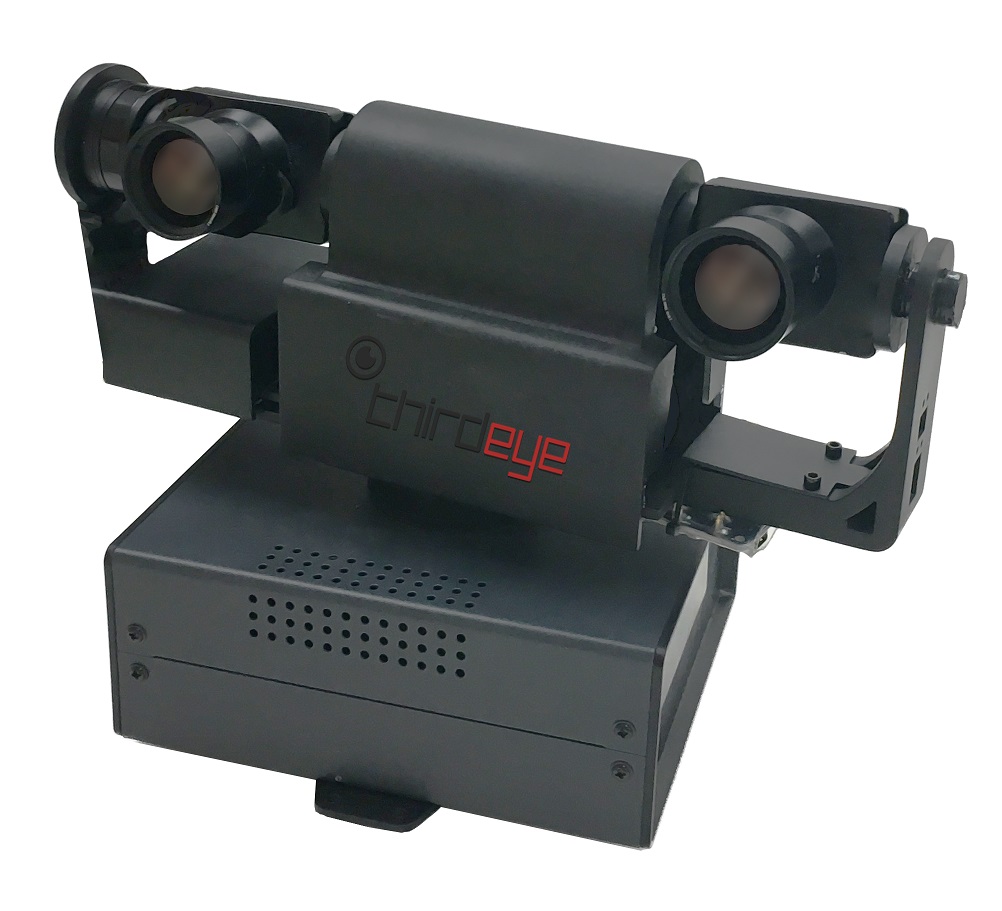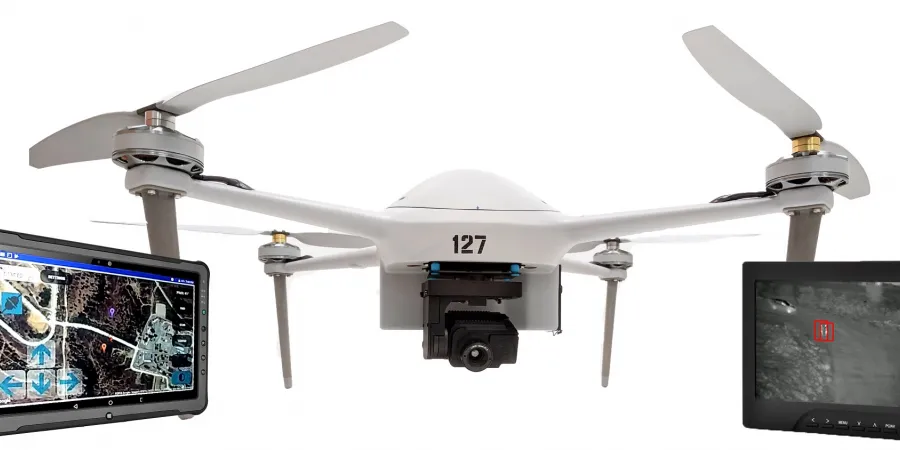Eurosatory 2018: ThirdEye Systems to Reveal Meduza – Passive Drone Detection Platform
The company will also present aEYE – a thermal analytics and classification system that enables fully autonomous missions
Eyal Boguslavsky
|
06/06/2018
ThirdEye Systems, an Israeli innovator in the field of robotic security systems, will present its man-portable passive drone detection platform, Meduza, for the first time at Eurosatory 2018 show.
Based on on-the-fly, real-time thermal computer vision algorithms, Meduza can be installed as a stand-alone unit or as a complementary system to long-range detection systems. Unlike radar, it can detect drones low on the horizon, even against a complex background. The man-portable platform is already integrated with hard-kill systems, so it can shoot down any drone it detects.
“Meduza offers high scanning abilities over vast areas and can detect objects over different types of terrain, including urban areas and more,” says Lior Segal, CEO of ThirdEye Systems. “Robust and portable, it is an efficient and cost-effective solution.”

At Eurosatory 2018, ThirdEye Systems will also present aEye, a fully autonomous, on-the-fly, AI-based, neural-network thermal analytics and classification system, with day and night capabilities. aEye’s on-board analytics enable threat detection while the drone is in flight. The management software of the system facilitates enhanced situational awareness while reducing operators’ cognitive stress levels. aEye can be installed on any third-party drone, from DJI M200 to high-duration drone platforms and MIL-STD drones, and is already operational on an advanced long-range VTOL platform.
“aEye can identify people and objects while in motion, transmitting the information directly to the control room,” says Segal. “By avoiding the need to send in patrol shift forces, it saves lives.”
The company will also present aEYE – a thermal analytics and classification system that enables fully autonomous missions
ThirdEye Systems, an Israeli innovator in the field of robotic security systems, will present its man-portable passive drone detection platform, Meduza, for the first time at Eurosatory 2018 show.
Based on on-the-fly, real-time thermal computer vision algorithms, Meduza can be installed as a stand-alone unit or as a complementary system to long-range detection systems. Unlike radar, it can detect drones low on the horizon, even against a complex background. The man-portable platform is already integrated with hard-kill systems, so it can shoot down any drone it detects.
“Meduza offers high scanning abilities over vast areas and can detect objects over different types of terrain, including urban areas and more,” says Lior Segal, CEO of ThirdEye Systems. “Robust and portable, it is an efficient and cost-effective solution.”

At Eurosatory 2018, ThirdEye Systems will also present aEye, a fully autonomous, on-the-fly, AI-based, neural-network thermal analytics and classification system, with day and night capabilities. aEye’s on-board analytics enable threat detection while the drone is in flight. The management software of the system facilitates enhanced situational awareness while reducing operators’ cognitive stress levels. aEye can be installed on any third-party drone, from DJI M200 to high-duration drone platforms and MIL-STD drones, and is already operational on an advanced long-range VTOL platform.
“aEye can identify people and objects while in motion, transmitting the information directly to the control room,” says Segal. “By avoiding the need to send in patrol shift forces, it saves lives.”



